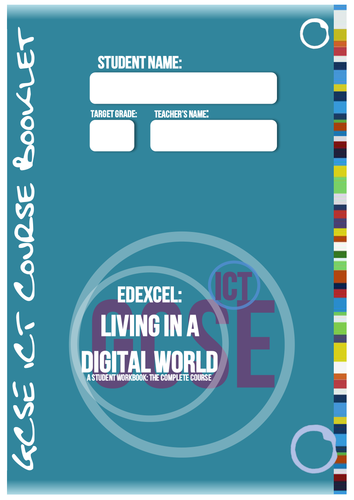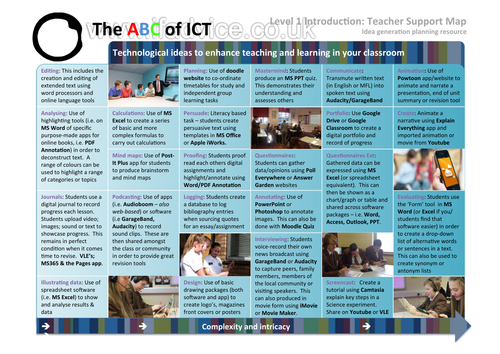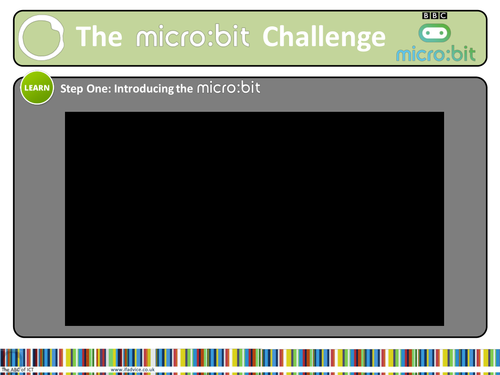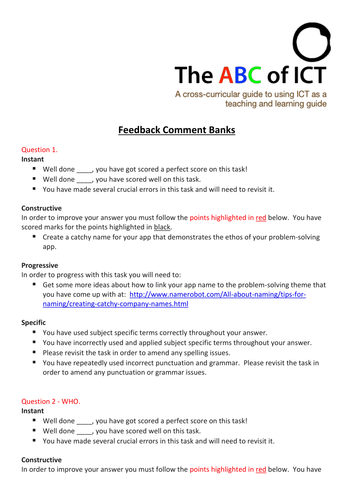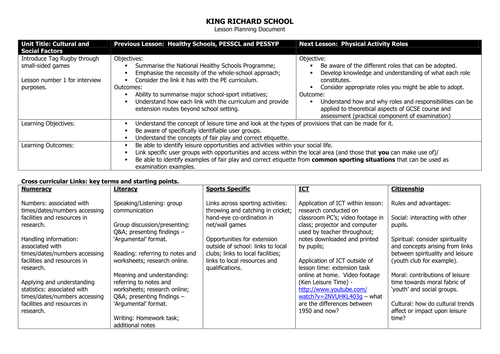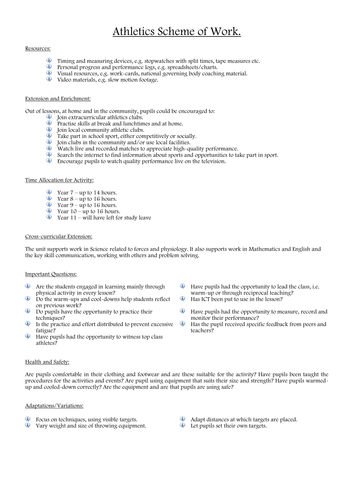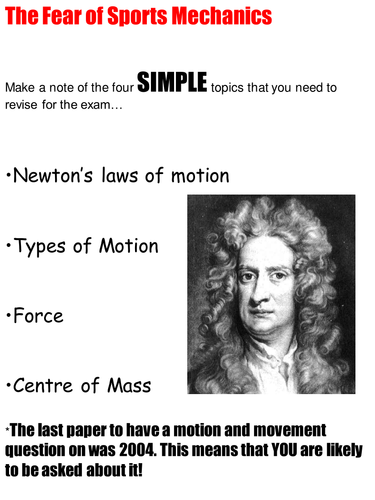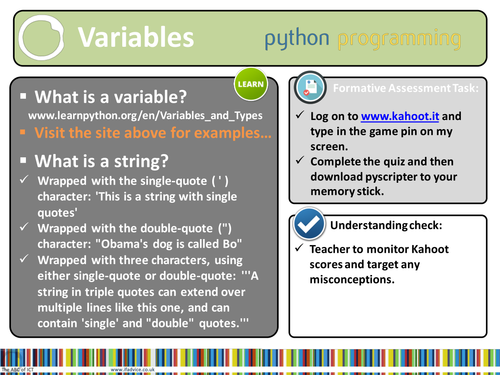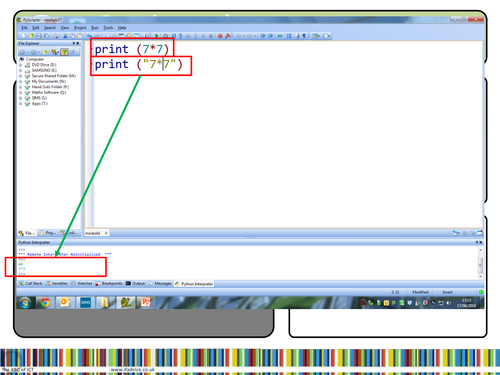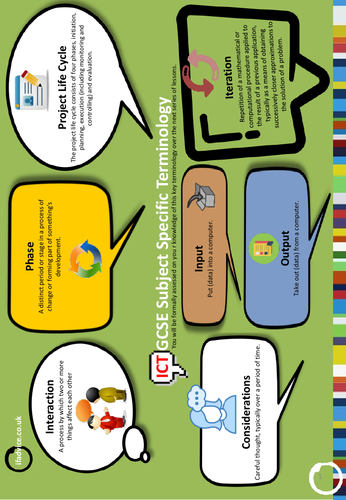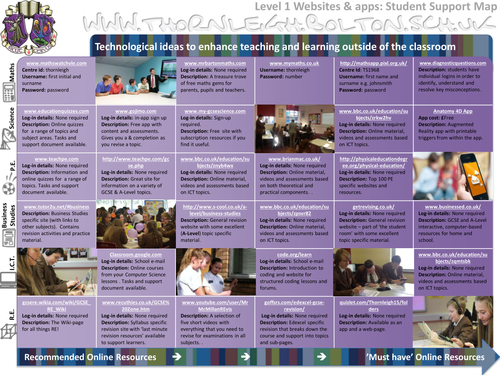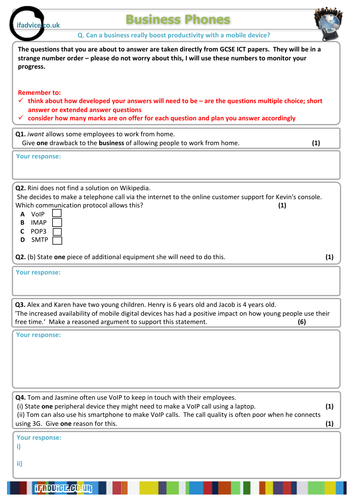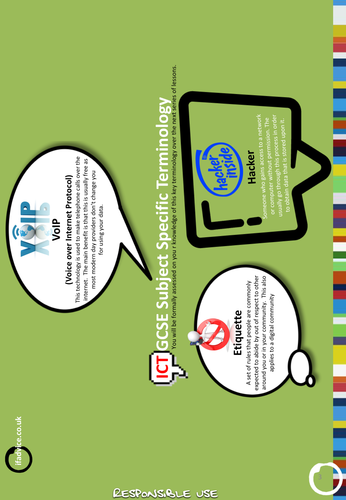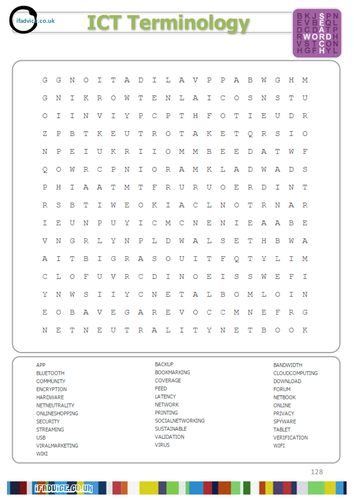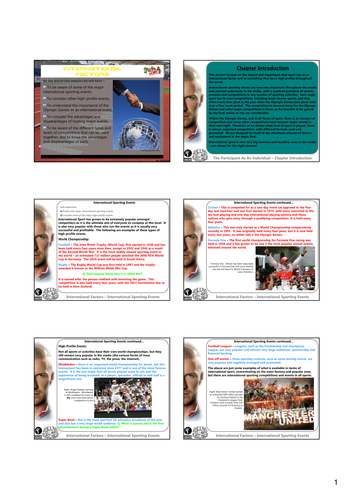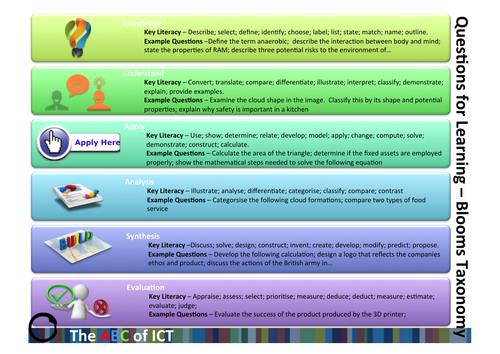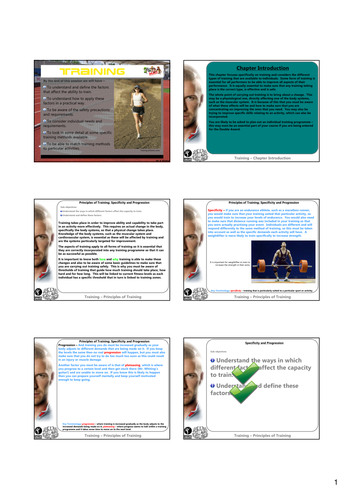
172Uploads
48k+Views
3k+Downloads
All resources

Edexcel GCSE ICT Course Booklet v2.0
This course booklet contains all of the:
- worksheets
- chunking/terminology activities for each lesson
- homeworks
- associated mind map and revision activities
- revision activities
- literacy activities
- differentiated word searches and crosswords
I issue each student that I teach with this booklet and we work through it with the associated PowerPoints.
The booklet starts with a specification checklist and a PLC activity for each unit of work.
Each lesson starts with the associated chunking/terminology and then features lesson content and an associated home task (past paper of exam-style questions). I work through these one lesson at a time and test the terminology/chunking knowledge in the next lesson (usually a practical or CAB lesson).
At the completion of each teaching block, student create their own mind map.
At the end of the course are some revision activities and high quality mind maps.
This is the complete document for teaching the Edexcel GCSE ICT theory components.
This document last my classes for two years.

Planning to use ICT in your lesson?
Use this resource to inspire you to incorporate ICT in your lessons. Each suggestion increases in complexity form left to right, using software from the modern school environment.
Plenty of support material on my website to help you once you have identified the method that you want to incorporate into your planning.
This is also an excellent tool to use with NQT, RQT or to inspire long-standing departments and colleagues to improve the quality and modernity of their planning.

Teacher's Digital Planner (Excel)
This digital planner is primarily aimed at those teachers who type faster than they write! However, I have continually used this with teaching staff that are struggling with the quality of their planning, monitoring, recording or reporting. It serves as the traditional 'teacher planner' in an easy to use format that can be amended to include your students and class names - this information can be directly imported form your School Management System (SIMS).
I find this particularly useful at the end of the academic year when we are thinking about amendments that need to be made to programmes or study, schemes of learning or individual lessons. Information can easily be copy and pasted across classes in your planner if you teach parallel groups in a year group or into new programmes or study, schemes of learning or individual lessons as you evaluate the success of your teaching as an individual or department. As someone who monitors carries out Quality Assurance of several departments, this resource is fantastic at giving me instant access to staff's planning and assessment data. I have centralised this as a collaborative tool using Google Drive, allowing staff to access their planner on multiple devices, whilst providing me with a great overview.

BBC Micro:bit (Microbit) lessons
I have been using these lessons challenges with a series of groups and they appear to have been really well received.
Like many professionals, I have been trying to get to grips with the Micro:bit and find resources or lessons for my students to have a go at. There are loads around and this is a collection of progressive tasks that I think have been put together in a really coherent way for the teenage mind. Each one is a video tutorial which will guide your students through each step and provide them with the theory behind each decision made in the program.
I would love to know your thoughts and I will add more, as and when they arrive.
I have used this resource over three lessons... a great filler once the students get to grips with it.
This also now includes a Python activity as well as Block Editor challenges.
in terms of assessment and monitoring progress... I have been keeping a very simple spreadsheet and inputting when the student has been to show me their finished task - this means that I can open a dialogue with the student and find out what they found easy/difficult with the task, as well as being able to redirect them onto another task or target misconceptions.

Feedback comment banks for marking
According to Professor John Hattie, feedback has the biggest impact on learning. However, the written feedback that we provide is often rushed (in a bid to finish marking that pile of books!) It is also a common trait that we don’t teach our students how to use the feedback that we provide. So with this method, I tend to concentrate on writing quality feedback and at the start of the year, following my first written feedback, we work on how to use this information to inform and progress our learning. As a result, this is a document type that I use on a daily basis in school. The concept involves writing a set of statements that can be used to feedback on a piece of work. I tend to write the statements/comments at the same time as I write each of the tasks as this allows me to think of all of the possible outcomes that a student will produce.
The feedback for each task is provided in four ways:
Instant: this is the feedback that the students look for straight away. It very quickly establishing ‘how well’ they have done/
Constructive: this part of the feedback outlines exactly what the student has done well and what they need to develop. I simply ‘copy and paste’ the whole statement into the feedback box and colour code it appropriately. Students are now used to looking into this section in order to ascertain the specifics of where they have achieved/no achieved.
Progressive: this is essentially an extension task for the student to follow. I often differentiate these pase on the ‘Constructive’ section. It takes the form of a link to a website; a video lecture or an activity. Sometimes these are assessed online - i.e. a Moodle Quiz or Educanon Assessment.
Specific: this section focuses on the school or subject priority. For example, Literacy is high profile in our school environment so I will often tailor comments in this section to be around Literacy and quality of written answers.

Athletics Scheme of Work
Athletics Scheme of Work for Years 7-10 with basic lesson outlines and suggested teaching activities.

Newtons Laws of Motion - PE example worksheet/booklet
Newtons Laws of Motion - PE example worksheet/booklet

Pastoral Management Spreadsheet
Pastoral Management Spreadsheet
I have been using this spreadsheet across our school and college for six years now. It allows me to share information and communicate in a formal way with my colleagues and senior staff within school.

Python Programming Lesson 3 (Year 7 or younger) - Strings and Variables.
A development from lesson 2 based on Strings and Variables. Introduction to strings and variables with linked examples and exercises for each.. This is the second lesson that is progressive, following a scheme of learning that will be published as an overview with the final lesson of the unit.
Lessons can purchased individually or as a package. Lesson duration approximately 50-60 minutes.
This lesson also includes links to a personalised Kahoot diagnostic assessment (free sign-up).

Python Programming Lesson 2 (Year 7 or younger)
A development from lesson 1. Introduction to calculations and basic code. This is the second lesson that is progressive, following a scheme of learning that will be published as an overview with the final lesson of the unit.
Lessons can purchased individually or as a package. Lesson duration approximately 50-60 minutes.
This lesson also includes links to a personalised Kahoot diagnostic assessment (free sign-up).

OCR Cambridge Nationals Information Technologies Terminology - Module 1
This is a series of worksheets with key terminology from Module 1 and definitions for each piece of key terminology. I use this with spellings and definitions tests and assessments on Moodle.

Websites for Learning
A cross-curricular list of key websites that are promoted and used by my Year 11 students.

GCSE ICT Key Terminology Poster 3
GCSE ICT Key Terminology Poster 3 - used around the classroom to help students learn the key terminology related to each topic covered.

GCSE PE - International Stuff
GCSE PE - International Stuff
These notes are to be used in conjunction with the official revision guide. I get my students to put a line through the sections/sentences that they are most confident with so that they can use them as flash cards.

Questions for learning - Bloom's Taxonomy
Questions for learning - Bloom's Taxonomy starter sentences, keywords and suggested questions.

6 Team League
This is a 6 team league which enables students to work independently during in-class activities (where teams are assigned points for a variety of activities or contributions to learning) or for sports activities.
During PE lessons, I use this with large groups who self-manage their fixtures and results, allowing me as the teacher to target my interventions and teaching points with better quality differentiation and fault analysis.

GCSE Revision - Training
GCSE Revision - Training
These notes are to be used in conjunction with the official revision guide. I get my students to put a line through the sections/sentences that they are most confident with so that they can use them as flash cards.

